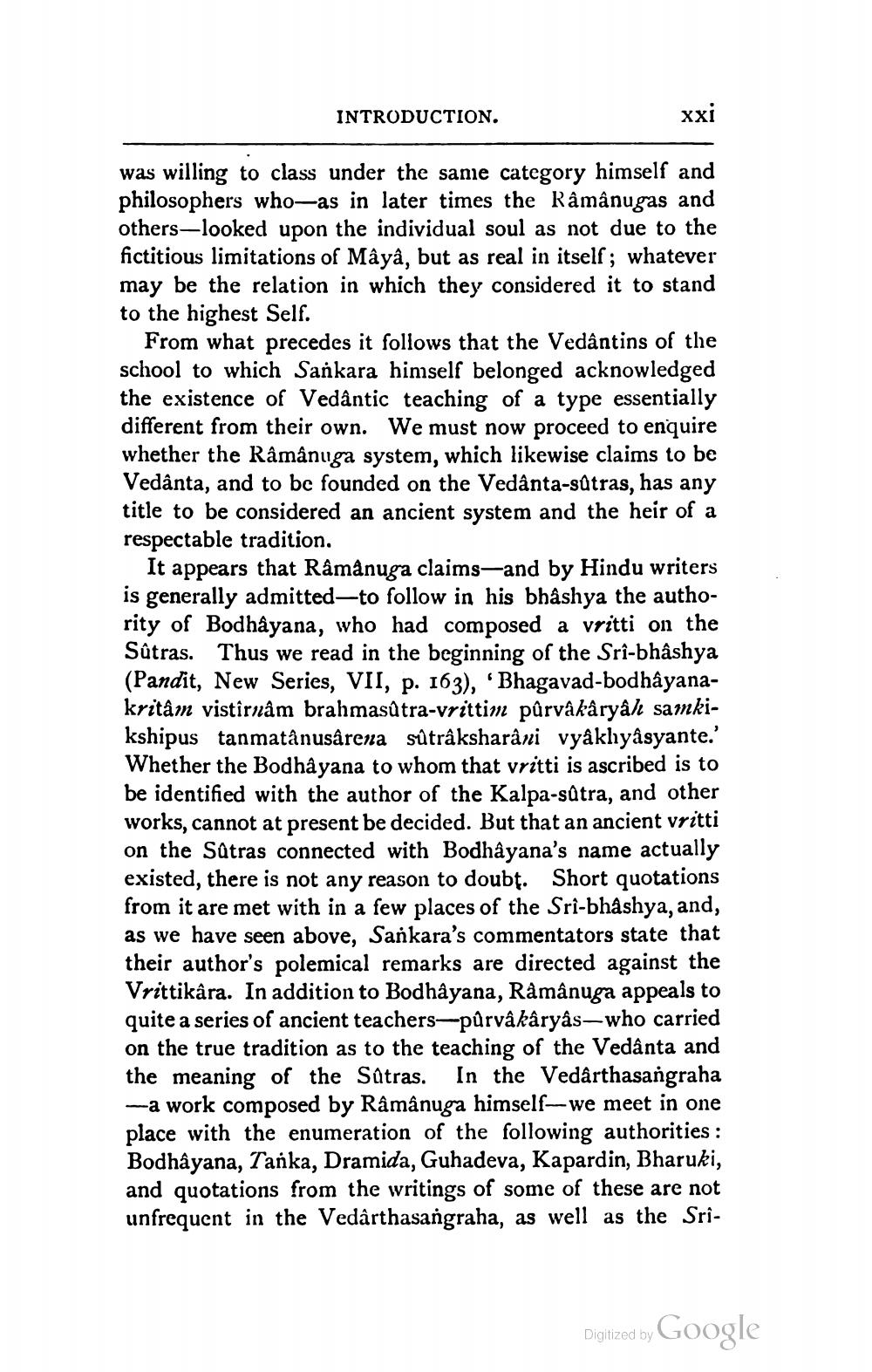________________
INTRODUCTION.
XXI
was willing to class under the same category himself and philosophers who-as in later times the Râmânugas and others-looked upon the individual soul as not due to the fictitious limitations of Mâyâ, but as real in itself; whatever may be the relation in which they considered it to stand to the highest Self.
From what precedes it follows that the Vedântins of the school to which Sankara himself belonged acknowledged the existence of Vedântic teaching of a type essentially different from their own. We must now proceed to enquire whether the Râmânuga system, which likewise claims to be Vedânta, and to be founded on the Vedânta-sútras, has any title to be considered an ancient system and the heir of a respectable tradition.
It appears that Râmânuga claims—and by Hindu writers is generally admitted-to follow in his bhâshya the authority of Bodhầyana, who had composed a vritti on the Sûtras. Thus we read in the beginning of the Srî-bhâshya (Pandit, New Series, VII, p. 163), 'Bhagavad-bodhầyanakritâm vistirnām brahmasútra-vrittim pûrvâkâryâh samkikshipus tanmatâ nusârena sútrâksharâni vyakhyâsyante.' Whether the Bodha yana to whom that vritti is ascribed is to be identified with the author of the Kalpa-sûtra, and other works, cannot at present be decided. But that an ancient vritti on the Sätras connected with Bodhầyana's name actually existed, there is not any reason to doubt. Short quotations from it are met with in a few places of the Sri-bhashya, and, as we have seen above, Sankara's commentators state that their author's polemical remarks are directed against the Vrittikara. In addition to Bodhảyana, Råmânuga appeals to quite a series of ancient teachers-pûrvâkâryâs—who carried on the true tradition as to the teaching of the Vedanta and the meaning of the Satras. In the Vedârthasangraha -a work composed by Râmânuga himself, we meet in one place with the enumeration of the following authorities : Bodhầyana, Tanka, Dramida, Guhadeva, Kapardin, Bharuki, and quotations from the writings of some of these are not unfrequent in the Vedârthasangraha, as well as the Sri
Digitized by
Digitized by Google




